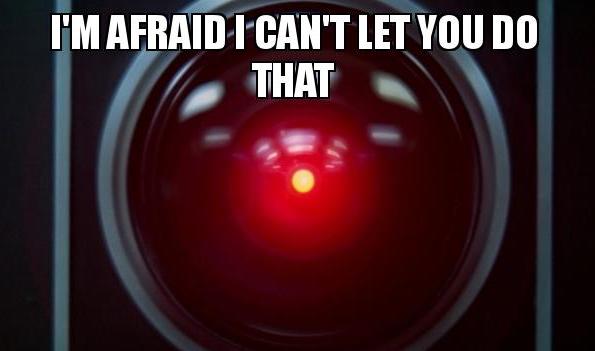Beating the Holiday Blues
Surviving the holidays without getting depressed

Rats! Here we are at the end of the year again.
It's supposed to be fun, so why do so many of us get depressed when the
holidays roll around?
The problem stems from a cultural bias against
taking the time to be still. What do I mean by that? Most of us are running
around on a fast-moving treadmill and we can't get off. This compulsively busy
behavior, this fast-paced mentality, is an unfortunate symptom of our time. If
you are in business, and especially if you are in business for yourself, the
old-fashioned eight-hour day has been transformed into a ten or twelve-hour
day. And for many people, even if they don't enjoy the work they are doing,
they need it because it provides structure for their lives. For true
workaholics, the holidays are regarded with dread because all they have to look
forward to is feeling aimless, lost, and frightened. Often these people fill their
time with endless tasks just to keep from being alone with themselves. They're
like sharks; they have to keep moving or they think they'll drown.
When your life is nothing more than a high-speed
chase, it's difficult to tune into what's going on in your emotional life.
While you're rushing around from one appointment to the next, one meeting to
the next, it's easy to miss messages from your body. People who don't slow down
and commune with themselves on a regular basis are eventually headed for a crash.
The crash often occurs at the holidays. Suddenly
you are forced to slow down and face all of the emotional issues that have been
piling up while you were on the move. To be confronted with these unresolved
issues in this unexpected way is the recipe for depression. The way to avoid it
is to learn how to be still and to spend quality time with yourself. I have
found several valuable techniques over the years to help me slow down. They
are: meditation, yoga, and "farting around." (Two of these are
well-documented, respected traditions found in the moth-eaten texts of Eastern
literature. The third comes from Ed's Encyclopedia of Living Well.)
The mind is the closest thing there is to a
perpetual-motion machine. It never stops working unless a conscious effort is
made to stop it. The practice of meditation is a conscious effort to stop it,
at least to some degree. It can be looked at as a form of self-hypnosis that
slows the mind down to a manageable speed so that we can be aware of what is
passing through it. Instead of entertaining the many unconnected thoughts that
pass through your mind, focus on one thing to the exclusion of everything else.
It takes practice, but the benefit is increased clarity. Here is a specific
exercise: Dim the lights. Sit cross-legged on a pillow or in a comfortable
chair and begin to focus on your breath. The breath is always a good object of
concentration because it is steady and reliable. Take a deep breath and slowly
count to five. Hold it one moment longer, then exhale to a count of five. Hold
it a moment longer, then inhale for a count of five, and so on. Try it for five
minutes a day and notice how relaxed you feel at the end of a week.
This breathing meditation is one of the basic
practices of yoga. Yoga is a methodology for expanding the mind and the body
through breathing and stretching. As we age, our bodies lose the flexibility we
need for optimal functioning. Many people like myself first approach yoga
because of an injury that won't heal or some soreness that won't go away. For
me it was the aches and pains from playing handball. The surprise bonus,
however, is the overall calming and healing effect it has on the body as a
whole. It slows us down and allows us to focus on our state of mind, right here
and right now. One cannot perform the various stretching poses of yoga without
constantly checking on the messages coming from the body. In this way, yoga is
an excellent way to answer the question, "How am I feeling right
now?"
"Farting around" can have the same
result. What I mean by this is enjoying unstructured time, spending time with
no apparent purpose, just being and observing. Most of our time is so filled
with purposeful activities that we can only let ourselves fart around on
vacation. And even then we keep ourselves surprisingly scheduled: sky diving at
noon, snorkeling at two, buying souvenirs for the family, showering, dressing
for dinner by six.
The flip side of this frantic scheduling is just
to slow down. At work, do one project at a time. Consider getting in early to
get a jump on the day. When you get home at the end of the day, don't rush to
turn on the TV and do five things at once. Instead, slowly hang up your coat,
turn on some music, pour yourself a glass of wine and go through the mail. When
the holidays arrive, don't give your phone number to your clients. Instead,
check in once a day. Be conscious of putting distance between work and play.
Allot time for both leisure and work, and perhaps cut down on the amount of
work you take home with you on the holidays.
Time is now in such short supply that it appears
to be a cardinal sin if we don't use every single moment for some specific
purpose. Well, I am now certifying "farting around" as a specific
purpose. If you learn to fart around on a regular basis, the holidays will seem
like the fun time they are supposed to be.
Ed Brodow is a keynote speaker and author of Beating
the Success Trap: Negotiating Your Own Path to Success.
For
more information on his presentations, call 831-372-7270
or
e-mail ed@brodow.com.
Copyright © 2018 Ed Brodow. All rights reserved.










